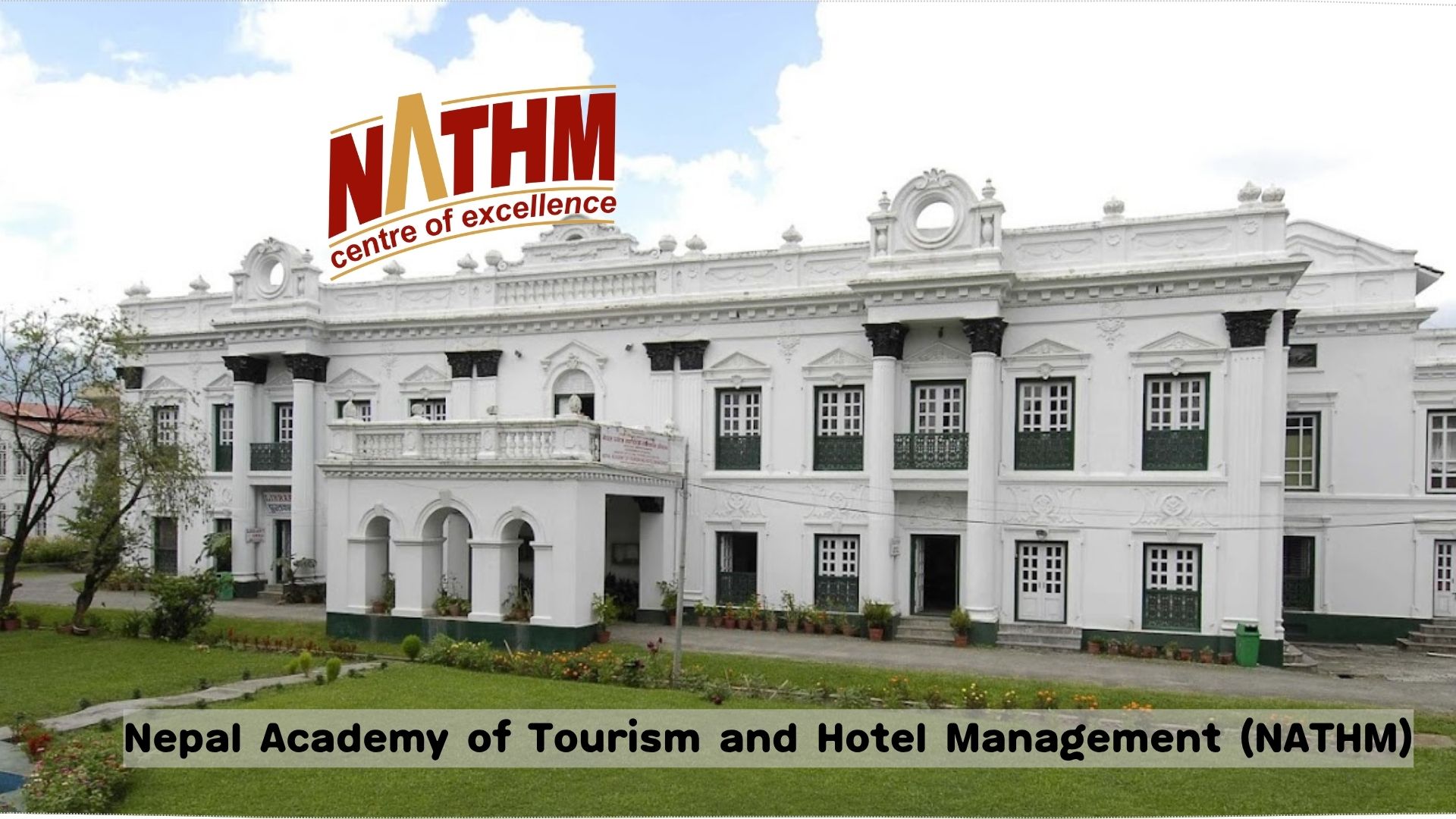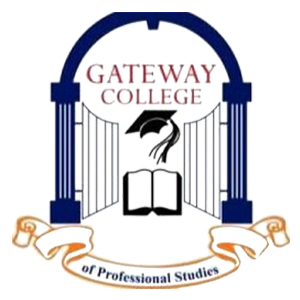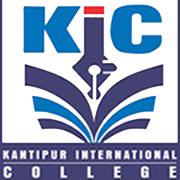Overview
MHM at Nepal Academy of Tourism and Hotel Management (NATHM)
Master of Hospitality Management (MHM) at NATHM, Kathmandu is a two-year postgraduate degree affiliated with Tribhuvan University that prepares you for advanced roles in tourism and hospitality management in Nepal and beyond.
MHM at NATHM blends tourism and hospitality management into a single master’s pathway that focuses on leadership, decision-making, and responsible practice.
The program aims to build your capacity in core business areas while grounding decisions in ethics and local context. The academy frames MHM as a response to Nepal’s priority sectors—tourism and hospitality—where competent graduates handle operations, policy, and service standards.
The academic load is 69 credit hours delivered across four semesters. Credits are divided into compulsory/core courses, focus-area courses, one elective, a policy analysis requirement, and a thesis. This structure helps you move from foundational study to specialization and research.

Highlights
-
Duration: two academic years, four semesters; total 69 credits.
-
Credit map: 33 (compulsory/core) + 24 (focus area) + 3 (elective) + 3 (policy analysis) + 6 (thesis).
-
Entry cycle: published by NATHM; use official admission page and contacts for current intake windows.
-
Learning focus: leadership, accounting, economics of leisure and tourism, HRM, accommodation operations, professional ethics, and research.
-
Contact and information desk: info@nathm.gov.np, 01-5970605; MIS/Library and downloads available for official documents.
Curriculum Details
The MHM syllabus develops managerial judgement for hospitality and tourism contexts. Semester-wise subjects and the overall credit plan are summarized below (verify with the MHM course page and syllabus file).
First Semester (sample shown in the official syllabus)
-
MHM 501 Management for Tourism & Hospitality (3 credits)
-
MHM 502 Economics of Leisure & Tourism (3 credits)
-
MHM 510 Philosophical Foundations of Tourism & Hospitality (3 credits)
-
MHM 512 Human Resource Management for Tourism & Hospitality (3 credits)
-
MHM 515 Management Accounting for Tourism & Hospitality (3 credits)
-
MHM 508 Accommodation Operations Management (3 credits)
Total: 18 credits in semester one.
Overall Program Credit Distribution
-
Compulsory/Core: 33 credits
-
Focus Area: 24 credits
-
Elective: 3 credits
-
Policy Analysis: 3 credits
-
Thesis: 6 credits
Total: 69 credits.
You will select one elective that supports your intended focus. The policy analysis course helps you read sector policies and evaluate their outcomes. The thesis allows you to investigate a managerial or policy concern using appropriate research methods.
Objectives
NATHM states that the master’s aims to produce a competent workforce for leadership across tourism and hospitality in Nepal’s context. The objectives include mastery of core business domains (economics, marketing, accounting, finance, law, organizational behavior, leadership), effective written and oral communication for decisions, productive use of information technology, global and diverse perspectives in decision-making, independent and critical thinking for problem-solving, and adherence to ethics in practice.
Scope
Graduates move into roles across hotels, resorts, travel and tourism organizations, event venues, airlines and airport services, hospitality training units, and tourism policy or project offices. The blended nature of MHM supports movement between operational leadership and planning work.
You can combine experience from frontline service, accommodation operations, or travel operations with analytical training from the master’s core. (For placements, seminars, and activities across the academy’s programs and events, see the official notices and activities links on NATHM’s site.)
Learning Outcomes
By the end of MHM you should be able to:
-
Interpret financial and managerial reports for hospitality contexts and make measured decisions.
-
Evaluate visitor demand, pricing, and policy changes using tourism economics concepts.
-
Lead diverse teams in hospitality and tourism settings with clear standards for communication and conduct.
-
Improve service quality in accommodation and related operations while meeting safety and compliance norms.
-
Produce applied research culminating in a thesis that addresses a defined sector problem.
-
Weigh ethical and cultural issues when making decisions that affect guests, staff, communities, and partners.
Skill Development Modules
The master’s emphasizes managerial skill formation that you can verify in the first-semester course mix and the broader credit map:
-
Decision-making under uncertainty using accounting and economics of tourism.
-
People management in hospitality workplaces, including recruitment, performance feedback, and workplace conduct.
-
Accommodation operations planning and service standards for rooms, front office, and housekeeping interfaces.
-
Policy reading and analysis, ending with a structured review of policy choices and their effect on the sector.
-
Academic writing, presentation, and referencing for the thesis and accompanying outputs.
Teaching Methodology
NATHM uses a mix of lectures, case discussions, demonstrations, and course assessments, supported by the academy’s MIS/Library.
The course page lists the dedicated MHM route and institutional links for downloads, notices, and academic queries. Your coursework will include class assignments, internal tests, and end-semester evaluations under Tribhuvan University rules, as specified in related NATHM program documents for evaluation models and attendance norms.
Admission Requirements
NATHM publishes intake notices and admission steps for MHM each session through its course and admission pages, so applicants should rely on those official updates for the current cycle. Use the MHM course page and the admission portal for the latest call, required documents, and timeline. For any doubt, contact the information officer or the academic office at the numbers and emails listed on the official page.
Tip for applicants: if you are a working professional, plan your course load early, match it with shift patterns, and speak with the program office about semester scheduling. The master’s structure (core + focus + elective + policy analysis + thesis) helps you phase heavy tasks, but time management remains your responsibility.
Career Opportunities
MHM graduates may enter roles such as:
-
Accommodation manager or department lead in hotels and resorts.
-
Hospitality analyst or supervisor in airport, airline, cruise or travel service units, based on focus courses and prior background.
-
Training coordinator or academic tutor in hospitality institutes and corporate training wings.
-
Project officer or policy assistant in tourism boards, local government tourism sections, or sector associations. (See the external-links list that connects to sector bodies the academy references.)
Your path depends on earlier experience and the topic you study in the thesis. Select a thesis that helps you build case experience—service quality, guest safety, destination capacity, revenue systems, or workforce development—so your writing supports the job you target.
Scholarships and Financial Aid
NATHM posts a semester-wise fee table for MHM that includes admission/registration, security deposit, maintenance, extra-curricular (seminar/workshop/internal exam), and semester tuition/other expenses. The table indicates a grand total of NPR 300,000 across four semesters for the items listed; exam fees are paid separately to Tribhuvan University before each semester exam.
Costs for tours, sports, and cultural functions are shared on a pro-rata basis; students bear uniform and journal costs; internship inside/outside Nepal may add costs. Confirm the current figures with the latest official notice before you enroll.
Why Choose This Course?
-
Two-year, 69-credit master’s that covers both tourism and hospitality management.
-
Clear first-semester foundation in management, tourism economics, HRM, accounting, philosophy of the field, and accommodation operations.
-
Structured path from core learning to focus area, elective, policy analysis, and thesis, which helps you build depth step by step.
-
Direct contact channels and a functioning MIS/Library for academic support and document verification.
Conclusion
MHM at NATHM offers a clear, verifiable structure for graduates who want leadership roles in hospitality and tourism. The curriculum mixes business fundamentals, sector-specific operations, and policy reading, then culminates in an applied thesis. If you plan to balance study and work, map your semester tasks early and keep close contact with the program office for schedules, assessments, and research milestones published through the official channels.
FAQ
What is the total credit requirement for MHM at NATHM?
The program requires 69 credits: 33 core, 24 focus area, 3 elective, 3 policy analysis, and 6 thesis.
How long does the degree take?
Four semesters across two years, as stated on the official course page.
What subjects appear in the first semester?
Management for Tourism & Hospitality, Economics of Leisure & Tourism, Philosophical Foundations of Tourism & Hospitality, HRM for Tourism & Hospitality, Management Accounting for Tourism & Hospitality, and Accommodation Operations Management.
How do I confirm the current admission schedule and requirements?
Check the MHM course page and the NATHM admission portal for the latest intake, and contact the information officer or academic office listed on the page.
What are the fees for MHM?
The posted table shows major heads—admission/registration, security deposit, maintenance, extra-curriculars, and per-semester tuition/other expenses—adding up to a grand total of NPR 300,000 across the four semesters. Exam fees are paid to TU before each semester exam; additional costs apply for uniforms, journals, events, and internship travel where relevant. Verify the latest figures before enrollment.
What facilities support MHM learning?
NATHM lists MIS/Library access, downloads, and academic links on its course page, along with official contacts for queries.



















